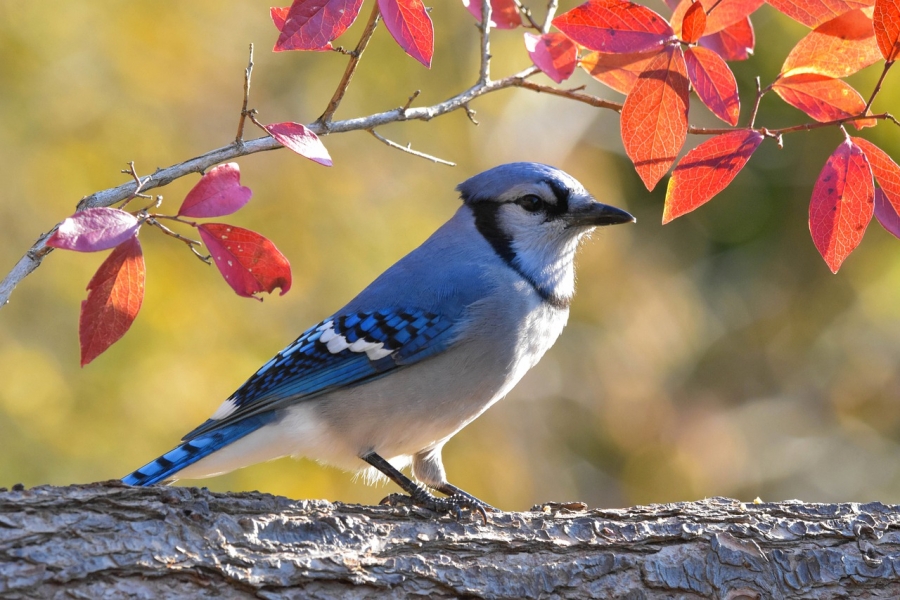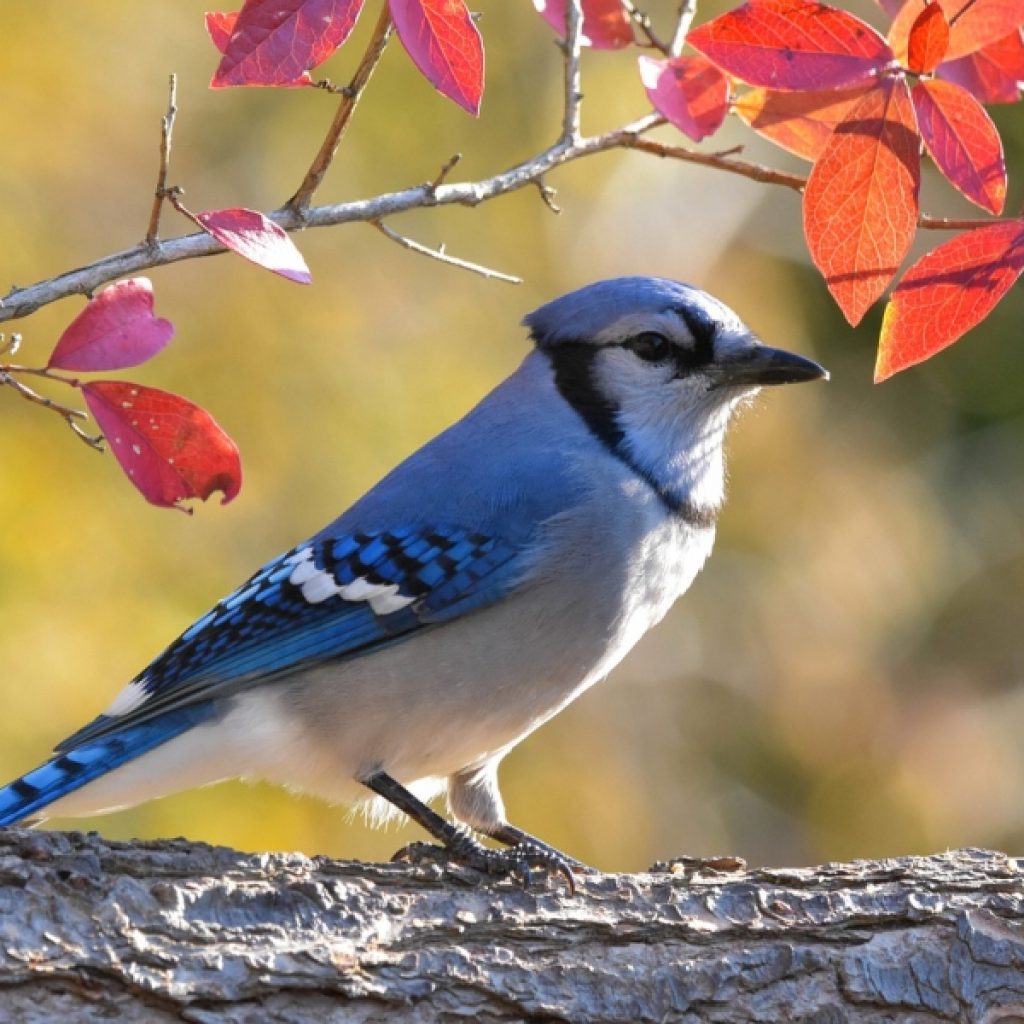
RALEIGH — N.C. Wildlife Resources Commission officials announced today that the outbreak affecting songbirds since May 2020 seems to be subsiding and, thanks to diligent reporting by North Carolina residents, it appears not to have notably impacted birds in our state.
The mysterious disease was reported in mostly mid-Atlantic and midwestern states, and as far south as Virginia with a few cases in Florida. It affected mostly larger-bodied songbird fledglings, such as blue jays, American robins, European starlings and common grackles. Diseased birds showed an unusual set of symptoms beginning with crusty, swollen eyes that progressed into tremors, an inability to maintain balance and other neurological problems that ultimately ended in death despite best efforts to treat the birds.
Multiple state wildlife agencies, conservation organizations and wildlife diagnostic labs have collaboratively tracked the outbreak to try and identify a cause, however its source remains a mystery. Hypothetical causes ranging from the Brood X cicada emergence to a variety of viruses, bacteria and parasites have all been ruled out.
In North Carolina, lab results of deceased birds that were reported by the public indicate malnutrition and physical trauma as the cause of death – common hazards for young, inexperienced birds. Additional lab reports are still pending, but biologists don’t anticipate any novel findings.
Other reports of sick songbirds in North Carolina mostly involved finches showing signs of common birdfeeder diseases, such as avian conjunctivitis and salmonella poisoning. Reports of other species concluded more typical causes of death, including windows strikes and moving vehicles.
Most songbird-related calls to the Wildlife Commission these days are people wanting to know if it’s safe to put their bird feeders back up. If you decide to reinstall your bird feeder, it’s advised to commit to sterilizing your feeders often. Frequent cleaning will help to prevent the spread of common bird diseases such as avian conjunctivitis, salmonella poisoning and aspergillosis in hummingbirds. Salmonella can also make people sick, so feeders should never be cleaned in the same area where food is prepared.
Songbird feeders should be sanitized at least every two weeks, and more often in wet or humid conditions. Wildlife officials advise:
- Remove all remaining seed and scrub off any debris.
- Soak feeder in a bleach solution of one-part household bleach to nine-parts water for 10 minutes.
- Dry the feeder completely before refilling.
Hummingbird feeders should be sanitized at least once a week, and more often in wet or humid conditions. Wildlife officials advise:
- Soak feeder in a bleach solution of one-part household bleach to nine-parts water for 10 minutes.
- Dry the feeder completely before refilling.
- Fill with a solution of sugar water, which is one-part table sugar to four-parts water, with no added dyes or any other form of natural or artificial sweetener.
Biologists at the Wildlife Commission will continue to monitor the situation and provide updates to the public as more information is available. In the meantime, remove bird feeders immediately if sick or dead birds are found near the area and contact the NC Wildlife Helpline for further instructions Monday through Friday, 8 a.m.–4 p.m., at 866-318-2401 or email anytime at HWI@ncwildlife.org.
If you handle a deceased bird, wear gloves or use an inverted plastic bag. Dispose of the bird in a sealed bag in the household trash or bury it deeply. Keep pets, including pet birds, and children away from sick or dead wild birds.
If you’d like to consider an alternative to bird feeders to attract birds and other wildlife to your property, the Wildlife Commission’s Extension Biologist, Falyn Owens, suggests establishing natural foods by planting native trees, shrubs, and flowers.
“When it comes to contagious diseases, birds are no different than other wildlife – when they regularly gather in one spot to eat from the same “plate”, they’re also sharing germs can spread diseases to one another,” stated Owens. “Native plants are natural sources of food for birds. They provide seeds, nuts, nectar, berries, and support the native insects that most songbirds need to survive their first few weeks of life. Plant life also allows birds to feed without congregating around a single food source, reducing the risk of disease transmission.”
Fall is an excellent time for planting. Native plants that benefit birds can be found on the Audubon North Carolina website.


